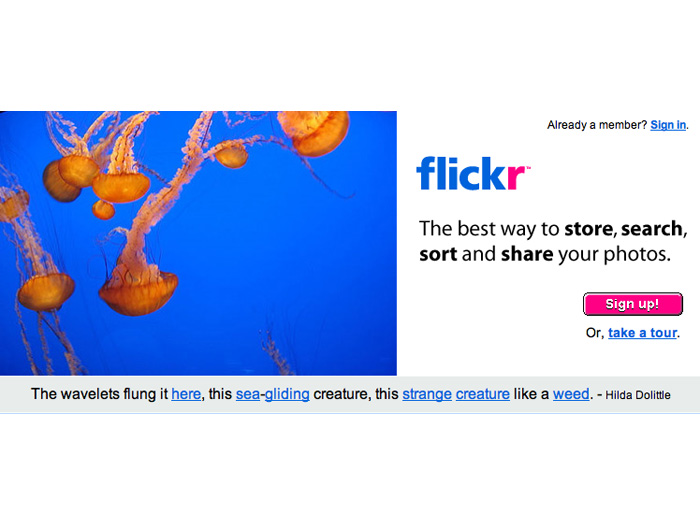China blocks Flickr photos of public protests
Censorship rears its head again as photo-sharing site barred

Following in the footsteps of Google is generally not a terribly bad idea. But when it comes to doing business in China, photo-sharing website Flickr is probably seeing things a little differently right now.
Just as the search giant ended up in hot water this April, Flickr is now in the Chinese firing line too. This time, however, the issue is not a spot of sneaky pilfering, but the much more insidious issue of government censorship.
Great Firewall
As of last weekend, Flickr users in China have been able to access but unable to view photos on the site. And - as with so many times in the past involving other websites - fingers are pointing at the government's 'Great Firewall of China'.
In the absence of any official response to queries from the Yahoo-owned company, investigations have been restricted to user forums, such as the one here . Frustrated Flickr founder Stewart Butterfield said: "We're still investigating. There isn't an '800' number you can call to register your complaint".
Speculation as to the cause of the block centres on recently added Flickr photos of protests against the construction of a chemical plant in the southeast city of Xiamen.
News of the protests was initially spread within China by SMS and blog postings. So, unless the Chinese government wants to completely isolate itself from the world, it might just be forced to get with the programme and join the rest of us in the 21st century.
Get daily insight, inspiration and deals in your inbox
Sign up for breaking news, reviews, opinion, top tech deals, and more.
J Mark Lytle was an International Editor for TechRadar, based out of Tokyo, who now works as a Script Editor, Consultant at NHK, the Japan Broadcasting Corporation. Writer, multi-platform journalist, all-round editorial and PR consultant with many years' experience as a professional writer, their bylines include CNN, Snap Media and IDG.